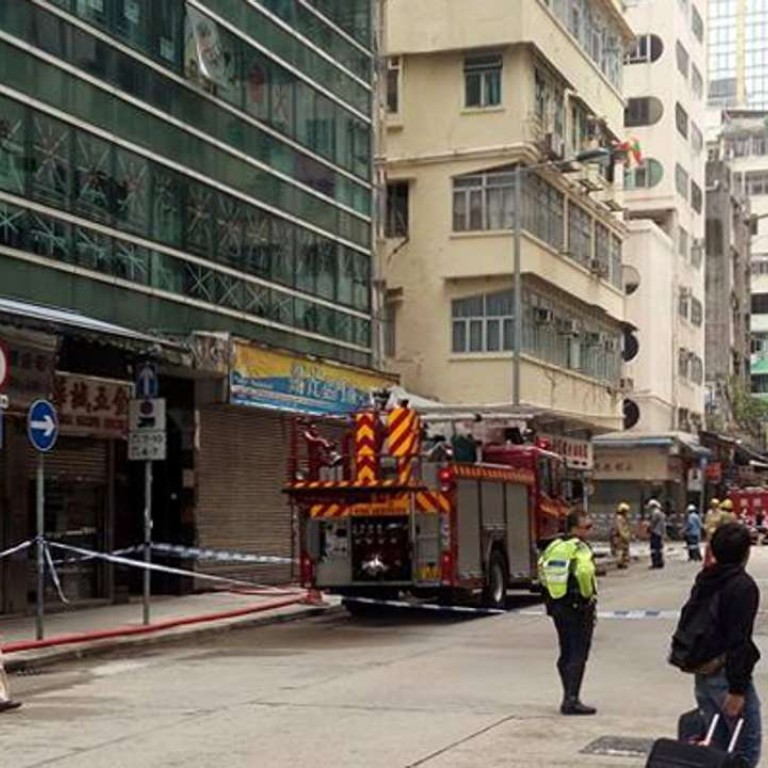
Faulty underground power cable suspected after Mong Kok road surface heats up to 70 degrees Celsius
Residents left without electricity as provider CLP Power digs up ground between Canton Road and Dundas Street for emergency investigation
Electricity supplier CLP Power was on Saturday looking into the possibility that a faulty cable underneath a road in Mong Kok caused its surface to overheat to 70 degrees Celsius, leaving some nearby residents without power.
The company, which supplies electricity to Kowloon, the New Territories and Lantau Island, said it was digging up a two square metre area at the intersection between Canton Road and Dundas Street at 6pm on Saturday night for investigation and repair work.
The supplier received a report from a local shopkeeper on Saturday morning saying the road surface felt abnormally hot.
Firefighters arrived at the scene and sprayed water on the affected area, as white smoke was seen spewing out of uncovered manholes.
The Fire Services Department detected a temperature of 70 degrees Celsius but said there was no gas leakage from surrounding pipes.
A spokesman for CLP Power said the firm suspected a faulty electrical cable, out of a total of nine running under the street, could have caused the ground to overheat.
“We have not been able to establish the exact cause of the incident at this stage ... but a further investigation is under way,” he said.
“During the inspection process, for the sake of safety, power supply was temporarily suspended for some customers.”
Firefighters said they suspected a possible electrical leakage from a faulty cable was responsible.
Cheung Sing-wai, an associate professor at the University of Hong Kong’s department of electrical and electronic engineering, said Friday’s typhoon could have caused a power cable to generate greater current.
“Rain water may have caused the cable to become less insulated. Since water conducts electricity, the increased electrical currents could have overheated the ground surface,” Cheung said.
He added that the possibility of an explosion could not be ruled out if gas from any surrounding pipes were to catch fire.
The road surface temperature cooled down to normal levels later in the afternoon.
By Saturday night, an area of pavement was still fenced off, but cars were able to pass through.
Power supply to about 30 affected residents resumed by 9.30pm, according to CLP.

